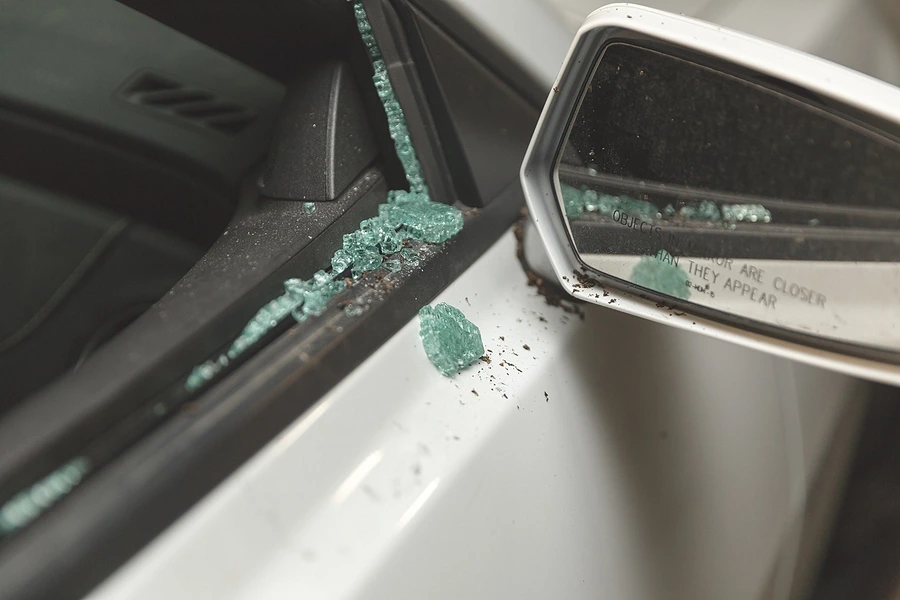Protecting Your Vehicle’s Worth with a Diminished Value Claim

When someone is hurt in an accident, the focus is usually on medical treatment, lost wages, and repairing or replacing damaged property. However, there is another type of loss that is often overlooked. In personal injury cases, especially those involving vehicle accidents, victims may also be entitled to recover compensation for diminished value. This refers to the reduction in value of a damaged item—often a vehicle—even after it has been repaired. Knowing how diminished value claims work can help accident victims in Orlando protect their financial interests.
What Diminished Value Means in a Personal Injury Claim
Diminished value is the difference between what an item was worth before an accident and what it is worth after being repaired. This concept most often applies to vehicles, but it can also involve other personal property. Even if repairs restore an item to working condition, its resale value can still drop simply because it has an accident history.
For example, if a car worth $25,000 is involved in a crash and then repaired, it might only be worth $20,000 afterward. The $5,000 difference is considered diminished value. In a personal injury claim, this loss can be included as part of the damages sought from the at-fault party or their insurance company.
Types of Diminished Value Claims
There are several forms of diminished value that may come into play. Understanding each type helps clarify what may apply to a specific case.
Immediate diminished value is the loss in value right after an accident but before any repairs are made. This is usually used by insurance companies to measure how much a vehicle’s value has been impacted initially.
Inherent diminished value is the most common type claimed by accident victims. It refers to the loss in market value even after quality repairs are completed. Buyers often view vehicles with an accident history as less desirable, which lowers resale value.
Repair-related diminished value happens when repairs are done, but they are not perfect. This could include mismatched paint, lingering mechanical problems, or structural issues that reduce the vehicle’s appeal or safety.
In most personal injury cases, inherent diminished value is the main type pursued, especially when the repairs are otherwise done well but the market value still drops.
How Diminished Value Connects to Personal Injury Cases
Although diminished value is often treated as a property damage issue, it is closely tied to personal injury claims. When someone is hurt in a crash caused by another person’s negligence, they can pursue compensation for all losses resulting from the incident. This includes medical bills, lost income, pain and suffering, and property damage.
Diminished value fits under property damage. Even if the at-fault party’s insurance pays for repairs, the victim may still be left with a vehicle that is worth less than it was before the crash. In Florida, victims have the right to seek compensation for this difference as part of their overall personal injury claim.
Florida’s Approach to Diminished Value Claims
Florida law allows drivers to pursue diminished value claims against at-fault drivers and their insurance companies. However, the state does not require a person’s own insurance company to pay diminished value on a first-party claim, such as when they use their own collision coverage. This means these claims are typically made against the at-fault driver’s insurer.
Proving diminished value can be challenging. Insurance companies often try to minimize or deny these claims. They may argue that repairs restored the vehicle’s condition or that the drop in value is not significant. Because of this, documentation and evidence are critical to support the claim.
Proving a Diminished Value Claim
Successfully recovering diminished value requires clear evidence of the vehicle’s worth before and after the accident. Common types of proof include:
-
Professional appraisals from licensed vehicle appraisers showing the market value before and after repairs
-
Repair records that show what damage was fixed and how extensive it was
-
Comparable vehicle listings showing how similar cars without an accident history are priced
-
Vehicle history reports showing that the crash now appears on the car’s record
This documentation helps show the difference in resale value caused by the accident. Without it, the insurance company may reject or undervalue the claim.
Challenges That Often Arise with These Claims
There are several obstacles that accident victims commonly face when pursuing diminished value. One is that insurance companies may use formulas to calculate value loss that are not always accurate. These formulas can underestimate the impact of the accident on the vehicle’s market price.
Another challenge is that older or high-mileage vehicles are sometimes said to have little or no diminished value, even though they can still lose worth after a crash. Additionally, if a vehicle has been in previous accidents, insurers may claim the new damage did not significantly affect its value.
Having a lawyer who understands how these claims work can make a difference. A personal injury attorney can challenge undervalued offers, gather expert evidence, and push for a fair settlement.
Why These Claims Matter for Accident Victims
Even if a vehicle looks and drives the same after repairs, its accident history can follow it for years. Future buyers or dealerships often offer less for vehicles with reported accidents, especially if the crash caused major structural or frame damage. This means the victim can lose money when they eventually sell or trade the vehicle.
Including diminished value in a personal injury claim helps make sure the victim is fully compensated. It prevents them from carrying a hidden financial loss from an accident they did not cause. This is especially important for newer vehicles or luxury models where the drop in resale value can be significant.
Working with a Lawyer to Recover Diminished Value
Handling diminished value claims can be complex and time-consuming, especially when combined with other parts of a personal injury case. A lawyer can handle communication with the insurance company, gather the right documentation, and negotiate for the full amount owed.
In Orlando, where many residents rely on their vehicles daily, protecting the long-term value of a car can be just as important as paying for immediate repairs. A lawyer experienced in Florida personal injury law can make sure these claims are not overlooked or undervalued during settlement talks.
Conclusion
Diminished value is a real loss that can affect an accident victim’s finances long after their injuries heal and their vehicle is repaired. Including this damage in a personal injury claim can help ensure that the at-fault party, not the victim, absorbs the financial impact.
By understanding how these claims work and working with a skilled personal injury lawyer, accident victims in Orlando can protect both their health and their financial future. Addressing diminished value alongside medical expenses, lost income, and other damages can lead to a more complete and fair recovery.

 Call Us Today - It's Free
Call Us Today - It's Free